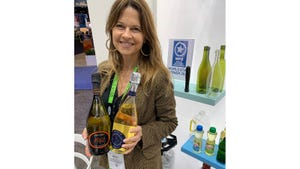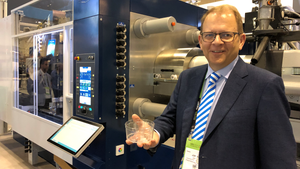One More Reason Paper Straws Suck
Paper and plant-based straws contain more PFAS — a lot more — than plastic straws, researchers find.
August 26, 2023

Paper straws suck for a number of reasons: They are no match for a Frappuccino; even faced with more forgiving beverages, they often buckle; and they are more expensive to manufacture than plastic straws. Belgian researchers have found yet one more reason to just say non to paper straws: They contain more PFAS, the so-called “forever chemicals,” than plastic straws. And if you’re thinking, “Well, there’s always bamboo,” think again: They came second in quantity of PFAS, right after paper and ahead of plastic straws.
“PFAS were found to be present in almost all types of straws, but primarily in those made from plant-based materials,” write the researchers in the conclusion of a paper published in Food Additives and Contaminants. “These ‘eco-friendly’ plant-based straws are not necessarily a more sustainable alternative to plastic straws, because they can be considered as an additional source of PFAS exposure in humans and the environment (e.g. after degradation in landfills or through incomplete incineration). The most sustainable alternative seems to be stainless-steel straws, which can be reused, do not contain PFAS, and can be fully recycled,” they concluded.
All told, the researchers found that 90% of the paper straws and 80% of bamboo straws they tested contained PFAS, compared with 75% of plastic straws.
PFAS contain multitudes
Poly- and perfluoroalkyl substances (PFAS) are added to many food-contact materials and reusable plastics in the food industry because of their non-stick and grease-, oil-, and water-resistant properties, notes the FDA. They have been in use for more than 80 years, but “scientific understanding and technical instrumentation needed to test for PFAS at very low concentrations in food only began in the last five years,” adds FDA on its website.
The PFAS category contains multitudes — more than 12,000 man-made chemicals fall under that appellation. Many of those chemicals barely break down over time according to specialists — some estimates posit it may take thousands of years —and they are potentially harmful to wildlife, humans, and the environment. They have been associated with health problems, such as a lower response to vaccines, lower birth weight, thyroid disease, increased cholesterol levels, liver damage, kidney cancer and testicular cancer, writes Phys.org. (Many experts say that it would take vast quantities of the chemicals in humans to have an adverse health effect. "The PFAS concentrations [found in the study] were low, and bearing in mind that most people tend to only use straws occasionally, pose a limited risk to human health. However, PFAS can remain in the body for many years and concentrations can build up over time, said the article in Phys.org).
Nevertheless, PFAS have been banned in food packaging in several states and their use is restricted in personal care products in a couple of states. The environmental agencies of five European countries have put forward a plan to drastically restrict the manufacture of the more than 12,000 “forever” chemicals.
Origin of PFAS in paper straws unclear
The team of researchers at the University of Antwerp in Belgium began their study based on the hypothesis that “straws made of paper were more likely to be contaminated with PFAS than other types of straws, as manufacturers aim to make the paper water-repellent,” they explain in the paper. They were unable to verify if the PFAS originated in the production process or resulted from environmental conditions, such as the soil in which the plant-based materials grew.
This is the first European study on the presence of PFAS in plant-based straws, according to the researchers. A US study by Timshina, et al., in 2021 referenced by the Belgium-based researchers, first revealed that PFAS could also be found in straws made from plant-based materials.
About the Author(s)
You May Also Like




